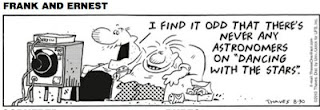Armstrong, Elizabeth and Laura Hamilton. 2013.
Paying for the Party: How College Maintains Inequality. Cambridge, MA: Harvard University Press.
This book describes the results of a five year study of the residents of one (all-female) floor of one dormitory in one year at a very-thinly disguised Indiana University. It features an impressive amount of interview and observational evidence gathered in part via the extended presence on the dorm floor of members of the research team (one of whom is in the sociology department here at Michigan).
The book divides the students into three tracks: socialite, striver and achiever, and then describes, in two chapters for each path, the students who were more and less successful at the path. Lurking in the background - this is sociology, and usefully so - are the institutional constraints that channel students into particular paths and out of others and that help determine who succeeds and who fails within a chosen path. For the socialite path, for example, it is relevant that the university offers a number of degree programs that reward social skills as much as academic ones.
I found three aspects of the book particularly useful. First, the book is fantastic on the micro-foundations of mismatch. The mismatch emphasized here, unlike that in the economics literature, is social class mismatch, rather than academic preparation mismatch. I think the economics literature (including my papers) misses an important part of the story in that sense. This aspect of the book reminded me of the descriptions of class-based mismatch in
Black Ice, which I read a long time ago (and also recommend).
Second, the book illustrates what it looks like when students from families where no one has gone to a four-year university (or maybe even a community college) show up on campus without much information about how things work and without much in the way of resources to help them figure it out. It is a real challenge for researchers in this area, who know how higher education works inside and out, to put themselves in the shoes of students who, not unreasonably given their environment, appear astoundingly clueless at times. This lack of information is important when thinking about dropout rates and about time-to-degree.
Paying for the Party provides a good reminder of how it feels not to understand the institution very well.
Third, I found (as I nearly always do) the discussions of research methodology quite interesting. Some of them are relegated to an appendix. If you get the book, you should read them anyway. I thought they were some of the most interesting bits. This sort of ethnography with a group of subjects who all know each other and so talk about each other and talk about the research with each other raises all sorts of interesting questions that I had not thought about before in terms of research design and research ethics.
One always approaches the policy chapter in social science books by non-economists with some trepidation. Perhaps because my expectations were so low, this one was better than I expected. It still has some howlers, such as the pointless suggestion of doing away with the university's semi-pro basketball and football teams. But more broadly what it does (though not always on purpose) is illustrate that Americans expect universities to be lots of different things: finishing school for rich girls, gateway to social mobility for the rural and urban working class (and occasionally the poor), social class replication device for the upper middle class, bastion of the life of the mind, research powerhouse, and so on.
What I took away from the book is not that one of these purposes should predominate but that the university should try to make sure that students can make informed and successful choices about which aspects they want to indulge. It is very clear that the university studied in this book does not do a good job of this. First and foremost, it assigns students who are not party animals to the party dorm and then leaves them there without clear and easy pathways to get out. Moreover, the book is full of tales of hopeless counselors and of students who have no idea how to navigate the university and no idea how to get someone to help them do so. These are customer service basics for a university.
The authors want to draw broader conclusions than simply how to better run a large public university. I was fine with some of what they had to say, but in other cases I thought that they went astray by over-generalizing from one floor in one (party) dorm in one cohort. Still,
Paying for the Party is very much recommended for those interested in the inner workers of academia from the student's viewpoint.



